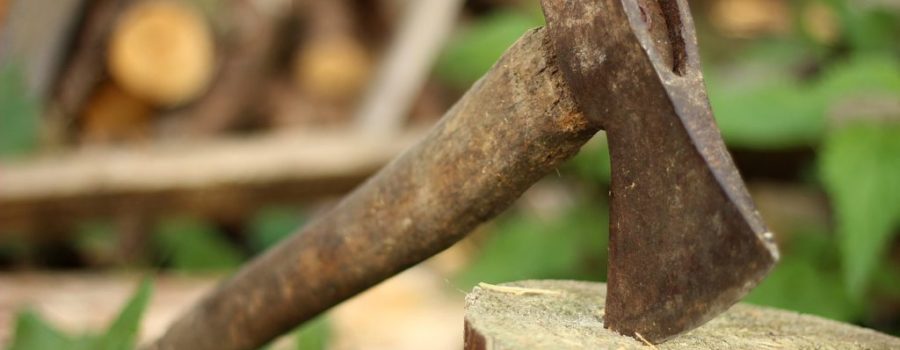In recording the execution of Zemnarihah, the Stick of Joseph records:
And there were many thousands who did yield themselves up prisoners unto the Nefites, and the remainder of them were slain; and their leader, Zemnarihah, was taken and hanged upon a tree, yes, even upon the top thereof until he was dead. And when they had hanged him until he was dead, they did fell the tree to the earth and did cry with a loud voice, saying, May YHWH preserve his people in righteousness and in holiness of heart, that they may cause to be felled to the earth all who shall seek to slay them because of power and secret conspiracies, even as this man has been felled to the earth! (3 Nefi 2:14)
Why did they fell the tree? Because this was required by the Halacha surrounding death by hanging. We read in the Torah:
And if a man have committed a sin worthy of death, and he be put to death, and you hang him on a tree: His body shall not remain all night upon the tree, but you shall in any wise bury him that day; (for he that is hanged is accursed of Elohim;) that your land be not defiled, which YHWH your Elohim gives you for an inheritance. (Deut. 21:22-23).
The Hebrew says כִּֽי־קָבֹ֤ור תִּקְבְּרֶ֙נּוּ֙ literally, “for burying you shall bury him/it.”
While the use of a verb with its infinitive is a common Hebrew idiom, amplifying the verb, the Tenth hermeneutic rule of Eliezer’s Baraita of Thirty Two Rules of interpretation reads “davar shehu shanui” meaning “repetition brings out a point.” In this case the repetition of the verb is taken by the Talmud to teach us that the tree is felled and also buried:
Our Rabbis taught: [Then thou shalt hang him on] a tree: this I might understand as meaning either a cut or a growing tree; therefore Scripture states, Thou shalt surely bury him: (literally “burying you shall bury”) [thus, it must be] one that needs only burial, so excluding that which needs both felling and burial. R. Jose said; [It must be] one that needs only burial, thus excluding that which requires both detaching and burial. And the Rabbis? — Detaching is of no consequence. (b.Sanhedrin 46b)
The Jewish commentator Maimonides comments on this passage of Talmud saying that the tree is felled and buried:
“In order that it should not serve as a sad reminder, people saying: ‘This is the tree in which so and so was hanged’” (Maimonides, b.Sanhedrin, XV, 9).
Yosef ben Yosef could not have known that Jewish law required the Nefites to fell the tree on which Zemnarihah was hanged, and the Stick of Joseph could not contain such an account unless it was an authentic record of Israelite people.



Leave a Reply